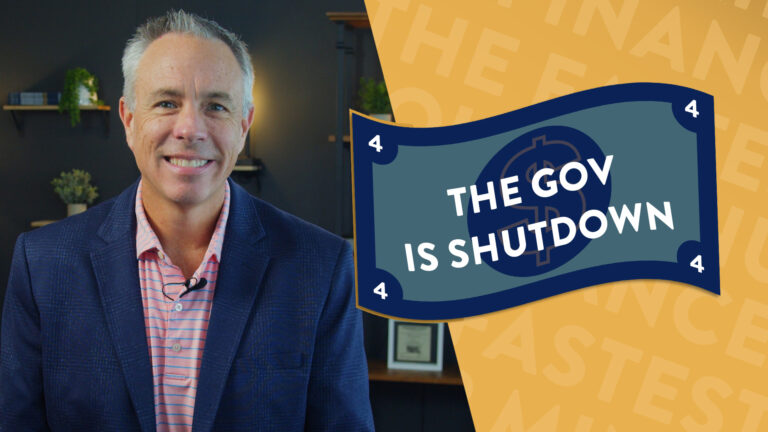There are many ways we show our family we love them. We spend time with our spouse, guide our children as they grow, and spoil our grandchildren. One way to show love that is often overlooked is setting up a written guide for our family and finances for when we are no longer with them. By thinking ahead and preparing for the future, we can alleviate stress and provide all the resources necessary for our loved ones, even after we have passed.
Why You Should Talk About Family and Finances
For many, talking to your family about money can be uncomfortable. This is normal! Despite any potential awkwardness, it is imperative you communicate your financial plan with trusted members of your family. Whether this is a spouse or adult children that you can trust, clear communication can help ease unneeded stress in the future.
While no one wants to think about unexpected sickness or loss, it is better to be prepared than to be caught without a plan. The time to make and communicate a financial plan is before the need arises. If you don’t have a written document about your family and finances, now is the time to get it down on paper!
Sharing Your Financial Plan
For many couples, one person is the budgeter and the other person is happy to let their spouse crunch the numbers and pay the bills. While this works well in many day-to-day scenarios, it is risky for one person to have all the knowledge of your household’s bills, financial plan, and retirement. Even if you are not the primary person dealing with the family’s budget, be sure you know how to access and pay the bills in case your partner is unable to at any point.
Your wishes concerning family and finances may be clear in your own mind, but having documentation and clear communication will erase any potential confusion or second-guessing for your loved ones in an emergency. Having a financial plan and making it known is a loving act that will be invaluable should the need arise.
How to Open the Conversation
So, how do you even start this conversation? Sharing your financial plan with loved ones doesn’t have to be difficult if you have all the information organized well. Here are some tips for having the conversation around family and finances:
- Be clear about what you want to discuss before you gather
- Share your heart behind being prepared
- Have all the information in one place
- Make sure the right people have access to the information
Once you have the information organized, it is important to share your wishes and financial plan as soon as possible. With important information, it is best to communicate as clearly and accurately as possible. This is why a written plan for your family and finances is incredibly helpful as you have these discussions.
The ‘Honey, I Love You’ File
Keeping your family and finances organized is key to setting yourself and your loved ones up for success. When your financial plan, assets, and final wishes are in one place, the conversation with your family is easier and they will have all the information they need should the time come when you are not able to walk them through it all.
This is where a document we like to call the “Honey, I Love You” file comes into play. The “Honey, I Love You” file has all the important contacts and details for accounts, policies, and final wishes to take the stress off your family when you are gone. With this document, your loved ones will know everything they need in the future. Make sure they exactly where the file is and how to access it.
What to Include in the ‘Honey, I Love You’ File
The “Honey, I Love You” file can be as extensive as it needs to be. By including all the information your family will need to access your accounts and wishes, you can be certain your family and finances will be properly taken care of even if you are not there to do it yourself.
Your “Honey, I Love You” file should have information on anything your loved ones may need access to, including:
- Contacts for your financial advisor, attorney, and insurance provider
- Life insurance policies
- Other insurance policies
- Investment accounts
- Bank accounts
- Estate planning documents
- Assets
- Liabilities
- Important passwords
- Final wishes
Because of the sensitive nature of a lot of this information, it is best to keep your “Honey, I Love You” file in a secure location such as a safe or safety deposit box. Just make sure your family knows how to access the information when needed.
Working With a Professional on a Financial Plan
Your strategy for your family and finances is as dynamic as you are, and it can be immensely beneficial to work with a professional to build and write out your plan. A financial advisor can help you organize your information and intentions. This will give you confidence and alleviate potential stress for your loved ones later on.
At GenWealth, we’ve seen time and time again the relief and gratitude a surviving spouse feels when they realize the financial plan is written in an organized file. The “Honey, I Love You” file is just one more way to show your sweetheart how much you care about them, even when you are gone.
The opinions voiced in this material are for general information only and are not intended to provide specific advice or recommendations for any individual.





